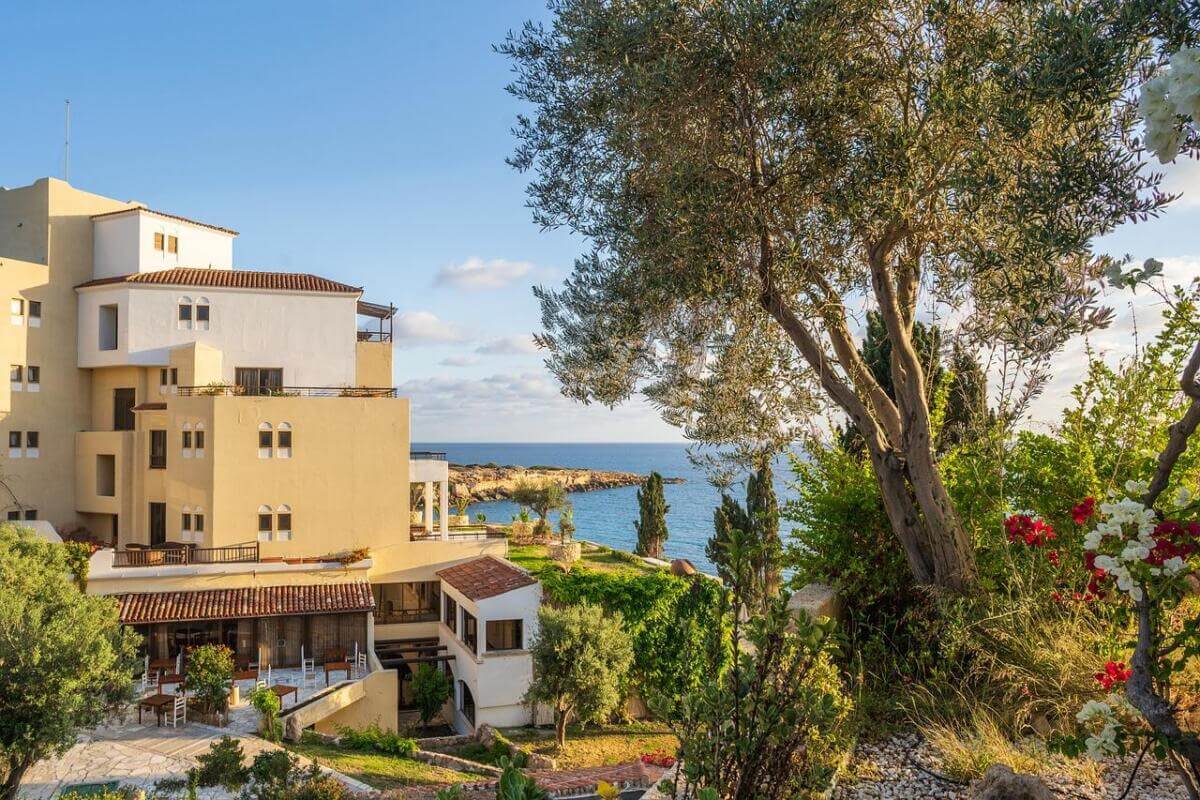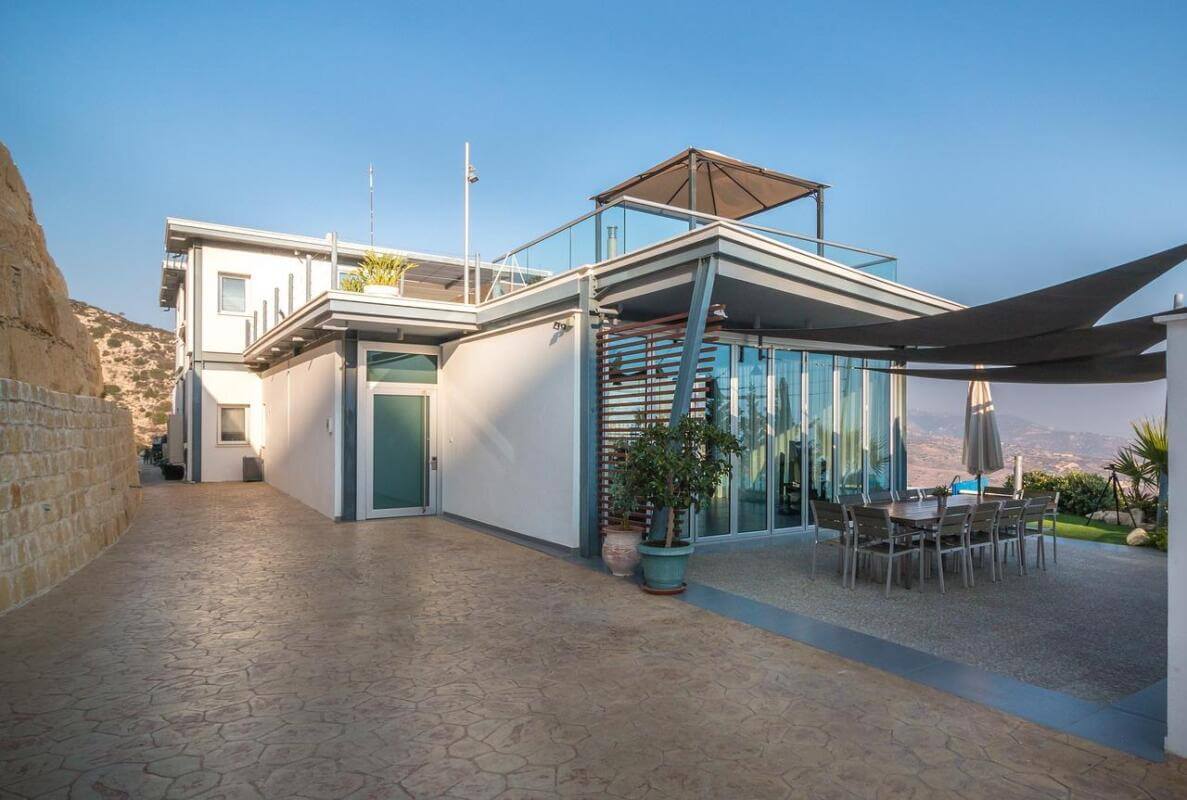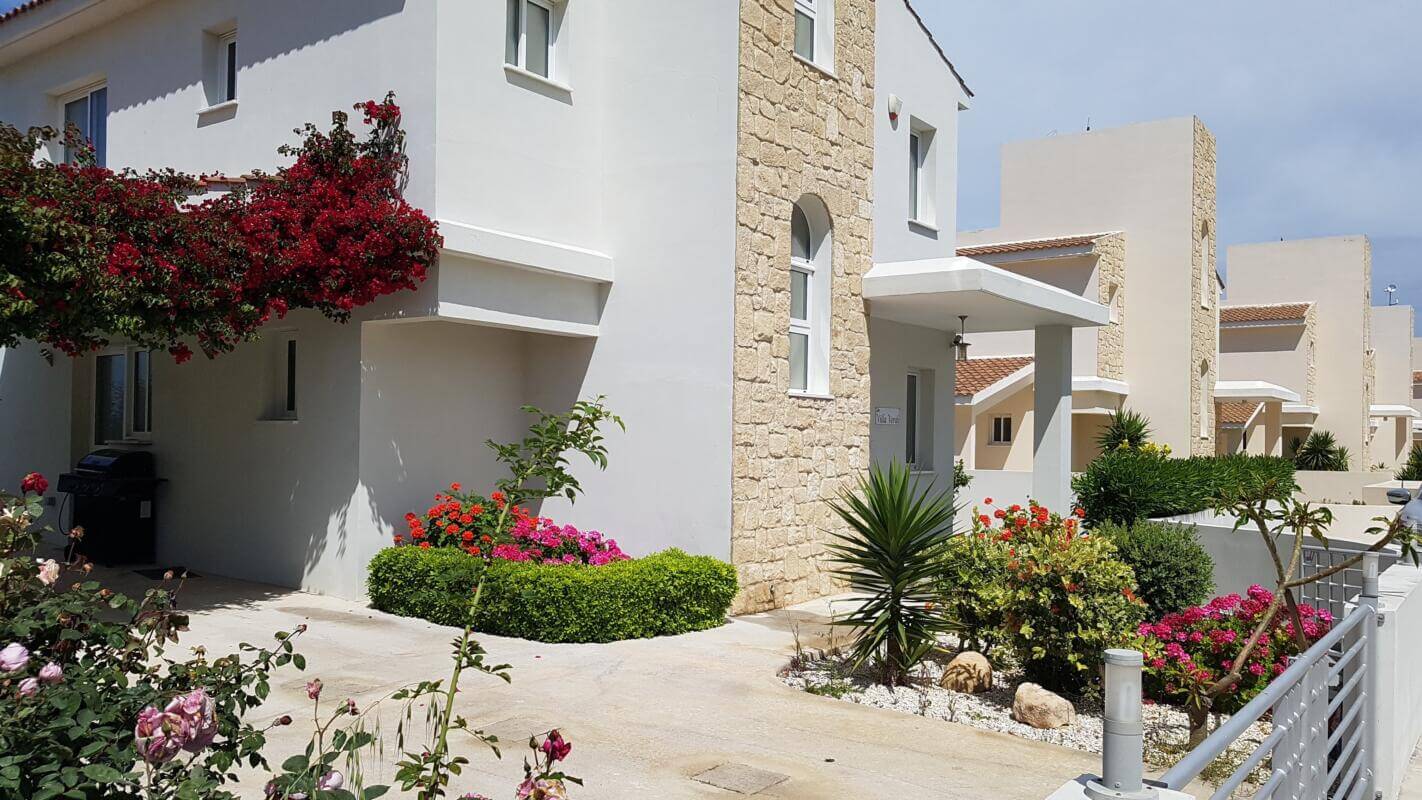Last Updated on 19/08/2025
Cyprus Real Estate Secrets Agents Don’t Tell You
Cyprus continues to gain momentum as one of Europe’s most strategic real estate hotspots, driven by high rental demand, limited new construction, and favorable tax conditions. But behind the glossy brochures and agency promises lies a complex—and rapidly shifting—market that only seasoned investors truly understand.
As of Q1 2025, property transactions in Cyprus surged by 5% year-over-year, totaling over €975 million in deal volume. The mid-to-high-end segment now represents more than 60% of total transactions, a clear sign that capital-rich investors are targeting premium assets for both long-term appreciation and lifestyle migration.
Residential Price Trends
Apartments in Limassol saw the most significant growth at 10.7%, driven by continued foreign demand and limited supply in premium beachfront zones.
Larnaca follows with 11% price growth, especially in coastal redevelopment areas.
Paphos remains a strong favorite among EU retirees and digital nomads, posting 8.3% growth.
Nicosia, while more stable, offers 5.1% gains, driven largely by domestic buyers and university-adjacent rentals.
Resilience Despite Global Headwinds
Cyprus’ market has proven remarkably resilient, even as other European property markets cool under inflation and interest rate pressure. A major driver is Cyprus’ low property taxes, double-taxation treaties, and non-domicile tax incentives that attract investors from Israel, Lebanon, Russia, and increasingly the UK and Germany.
What’s Fueling Growth?
Golden Visa & residency investment remain active incentives
Stable legal system based on English common law
Strategic location for cross-border business in the Mediterranean
But behind this growth lies complexity: investors must tread carefully to avoid inflated projects, underperforming units, and misleading agent pitches. In the sections ahead, we’ll break down where to invest, how to verify legal status, and what traps to avoid—so you can secure the yield and lifestyle you came for.
Best Locations for Yield & Strategy Alignment
Choosing the right location in Cyprus isn’t just about sun and scenery—it’s about aligning your property with a clear investment goal. Whether you’re seeking high rental yields, long-term appreciation, or a future relocation option, each city offers a distinct value proposition. Below is a breakdown of the best places to invest in 2025 based on net yield, buyer activity, lifestyle appeal, and resale liquidity.
Limassol: High Yields, High Demand
Average yield: ~7% on long-term rentals
Target profile: High-income tenants, international professionals, corporate relocations
Hot zones: Agios Tychonas, Germasogeia, City Center
As the financial capital of Cyprus, Limassol is the go-to for investors seeking liquidity and top-tier rental demand. High-rise luxury apartments and mixed-use developments along the coast offer modern amenities, stable occupancy, and increasing resale value. Prices are steep—but so are the returns.
Nicosia: Stability and University-Driven Demand
Average yield: ~5%
Target profile: Domestic renters, students, embassies
Notable areas: Engomi, Aglantzia, Strovolos
As the political and business heart of Cyprus, Nicosia provides consistent, if modest, returns. The rental market is driven by universities and local families. While it lacks tourist energy, it offers excellent year-round occupancy and lower price volatility.
Larnaca: Redevelopment Opportunity
- Average yield: ~4.5–5%
- Target profile: Early movers, holiday-rental investors
- Emerging areas: Livadia, Oroklini, Larnaca Marina
Larnaca is undergoing major revitalization, with projects like the new port and marina pushing demand eastward. Investors here benefit from lower entry prices and a window of appreciation before prices catch up with Limassol.

Paphos: Holiday Rentals & Retirement Haven
Average yield: ~4–4.5%, higher in peak seasons
Target profile: EU retirees, vacationers, expats
Top spots: Universal, Chloraka, Sea Caves
With picturesque views and a more relaxed lifestyle, Paphos appeals to holiday buyers and retirees from the UK and Germany. It’s less dynamic than Limassol but attractive for short-term lets and long-term visa buyers under Cyprus’ residency schemes.
| City | Avg. Rental Yield | Ideal For | Notes |
|---|---|---|---|
| Limassol | ~7% | Corporate rentals, ROI | Highest demand, strongest resale |
| Nicosia | ~5% | Students, families | Stable, non-tourist market |
| Larnaca | ~4.5–5% | Growth buyers | Upside from redevelopment |
| Paphos | ~4–4.5% | Holiday lets, retirees | Strong seasonal income potential |
Foreign Buyer Rules & Legal Essentials
Cyprus is one of the most open and investor-friendly real estate markets in the EU—but that doesn’t mean the process is frictionless. Whether you’re an EU national or a third-country investor, navigating the legal and regulatory framework is essential to protecting your asset and ensuring your purchase is valid under Cypriot law.
Do You Need Government Approval?
If you are a non-EU buyer, you must obtain formal approval from the Council of Ministers to acquire property in Cyprus. While often a formality, this step is legally required and applies to individuals purchasing:
Apartments or houses
Plots of land (up to 4,014 m²)
Commercial units for personal or rental use
✅ Tip: Begin this application as early as possible. Delays in approval can affect resale timelines or mortgage processing.
Property Ownership Types: Freehold vs. Leasehold
Nearly all residential properties in Cyprus are freehold, meaning you own the land and the structure. However, leasehold properties exist in certain tourism zones—especially near marinas or government-owned land. Always verify the title type before signing a contract.
Legal Framework: British-Influenced, Investor-Friendly
Cyprus uses a legal system based on English common law, which makes it familiar to international investors. Contracts are typically drawn up in both Greek and English. This structure allows for:
Independent legal representation
Transparent dispute resolution
Predictable contract enforcement
However, some developers use one-sided contracts that limit buyer remedies or delay delivery dates without compensation. Always have an independent lawyer review all documentation—never rely solely on the developer’s legal team.
Hidden Legal Costs and Delays
Stamp duty, VAT, and transfer fees are predictable, but don’t overlook:
Land Registry submission delays
Incomplete documentation on developer-side
Communal property agreement fine print (pool, parking, shared space clauses)
Municipal debts inherited with the property
🔍 Pro tip: Request a Title Deed Status Certificate and cross-check with the Cyprus Land Registry to avoid hidden liabilities.
Common Red Flags & Clauses Agents May Hide
Behind every polished brochure and beachfront balcony is a legal document—and that’s where the real Cyprus real estate secrets are buried. Many first-time investors assume agents act in their best interest. The truth? Most agents represent the seller or developer, not you. Here are the most common traps to avoid:
1. Developer-Only Listings: Inflated Prices, Limited Choice
Many agents push new-build properties exclusively from one or two developers. While these projects may look appealing, they often come with:
Inflated prices (especially if units have been sitting unsold)
One-sided warranties or hidden construction defects
Lack of resale data for comparison
💡 What to do instead: Work with a licensed buyer’s consultant who sources across multiple developers and resales. Request recent resale comps per m² and check absorption rates (how fast units sell) to avoid overpaying.
2. Contracts with No Delivery Guarantee
Some developers include flexible—or outright vague—language in contracts, such as:
“Delivery subject to availability of materials”
“Completion dates may vary without penalty”
“Developer reserves right to substitute finishes”
These clauses can delay your occupancy by months or years with no legal consequence for the builder.
✅ Always insist on a fixed handover date, with late-delivery penalties clearly defined in writing.
3. Clauses That Block Resale or Assignment
In some cases, your ability to resell or assign your contract before final delivery is restricted. These “anti-assignment” clauses protect developers’ margins—but limit your exit strategy.
🔍 Ask if resale/assignment rights are included, and get it in writing. Some contracts only allow resale after title deeds are issued—which can take years.
4. Freelancers or Unlicensed Agents
Not all agents are created equal. Many operate without proper registration, which means:
No legal recourse if something goes wrong
No access to verified developer pipelines
No protection of your deposit
🔐 Ask for:
Company registration number
VAT number
Physical office address in Cyprus
Proof of affiliation with a licensed real estate board (e.g., Cyprus Chamber of Commerce)
Tax Landscape—What Every Investor Must Know
Buying property in Cyprus doesn’t stop at the sale price. A maze of stamp duties, VAT brackets, rental income taxes, and capital gains obligations await unsuspecting investors—many of which agents conveniently leave out. Understanding these costs up front can significantly impact your net return.
Stamp Duty
Stamp duty is a one-time tax paid on the purchase price of your property at the time of signing the sale agreement.
0%: First €5,000
0.15%: €5,001–€170,000
0.20%: Above €170,000
Capped at: €20,000 maximum
✅ Example: A €400,000 property would trigger ~€715 in stamp duty.
VAT on Property Purchases
VAT applies only to new properties sold for the first time by a developer. Resale properties are exempt.
Standard Rate: 19%
Reduced Rate: 5% (primary residence under 200 m², subject to approval and occupancy requirements)
⚠️ Beware: The 5% VAT rate requires both application and formal approval. It’s not automatic.
Transfer Fee (Title Registration)
Charged by the Cyprus Land Registry when the property title is transferred to your name.
| Property Value (€) | Rate (%) |
|---|---|
| 0–85,000 | 3 |
| 85,001–170,000 | 5 |
| 170,001+ | 8 |
📉 Good news: Discounts apply if VAT was paid or for multiple properties purchased together.
Rental Income Tax (for Non-Residents)
If you rent out your property, rental income is subject to several layers of tax:
Income Tax:
Up to €19,500 = 0%
€19,501–€28,000 = 20%
€28,001–€36,300 = 25%
€36,301–€60,000 = 30%
Over €60,000 = 35%
Special Defence Contribution (SDC):
3% on 75% of gross rent (non-domiciled residents may be exempt)
GeSY (General Healthcare Contribution):
2.65% on gross rent
🔎 Planning tip: Use a Cyprus-based company structure or become a non-domiciled tax resident to reduce exposure to SDC and GeSY.
Capital Gains Tax (CGT)
When selling a property, you’re taxed on the net gain at a flat 20% rate, but deductions are allowed.
Deductions include:
Inflation adjustment
Legal fees
Renovation costs
Commission payments
Exemptions:
Up to €85,430 if the property was your primary residence for 5+ years
€17,086 lifetime exemption on non-primary home sales
€25,629 for farmland/agricultural use
Due Diligence Checklist: Legal, Permits & Title Clarity
Many Cyprus properties—especially new developments—are sold with shiny brochures but murky legal status. Even “ready-to-move-in” villas may lack critical permits or have unresolved liens that stall resale or block rental approvals. Here’s how to protect yourself before signing anything.
1. Title Deed Verification
The Title Deed (known locally as the “Certificate of Registration of Immovable Property”) proves full ownership. Yet, thousands of properties in Cyprus are sold without individual title deeds.
Some developers retain the title for years after construction
Others never obtain final building approvals required for issuance
Properties without title deeds are harder to resell or finance
✅ Action: Always ask for the Title Deed Status Certificate, issued by the Cyprus Department of Lands and Surveys. This confirms whether:
The title exists
It is in the seller’s name
It can be legally transferred
2. Check Building & Planning Permits
Even properties with a title deed must be cross-verified for zoning and compliance.
Ask your lawyer to review:
Planning Permit: Approves land use and development scope
Building Permit: Authorizes construction based on approved plans
Final Completion Certificate: Confirms the build meets approved specs
🛑 Warning: Some projects are marketed as “completed” even though the completion certificate is pending, which puts your purchase and future mortgage approval at risk.
3. Utility & Access Rights
Even if the house is built and legal, issues may arise around utilities and shared infrastructure:
Are water/electricity connected legally?
Are roads and sewer lines municipally approved?
Does your property include easements for shared parking or driveways?
📋 Ask for a communal area agreement and any associated maintenance obligations.
4. Municipal Debt & Encumbrance Check
Municipal debts (such as unpaid waste disposal or development levies) transfer with the property if not settled before the sale.
✅ Request a Property Encumbrance Certificate to reveal:
Mortgages
Liens
Legal disputes
Outstanding taxes or developer fines
Smart Financing for Foreign Buyers
While Cyprus remains an attractive cash-buy opportunity, many international buyers—especially from the UK, EU, and Middle East—prefer to leverage their capital through mortgages or structured financing. However, assuming you can get the same mortgage terms as in your home country is a major mistake.
1. Cyprus Bank Mortgages
Cypriot banks do lend to foreign investors, but the process is heavily documentation-driven and not always fast.
Loan-to-Value (LTV): Up to 70–80% for residents, 60–70% for non-residents
Interest Rates: Between 3.5%–5.5% annually (variable)
Loan Terms: Up to 30 years, usually capped at age 65–70
Approval Time: 4–8 weeks depending on paperwork
📌 You’ll need:
Proof of income (translated & notarized if non-EU)
Passport & utility bill
Bank statements (6–12 months)
Purchase agreement
Property valuation from a licensed surveyor
2. Bridge Loans & Developer Financing
For quicker acquisitions—especially when competing for off-market deals or distressed assets—some investors opt for bridge loans or developer financing.
Bridge loans: Short-term, interest-only, used to secure property fast before refinancing
Developer financing: May offer 0–5% interest for the first 1–2 years but is often priced into the property itself
⚠️ Warning: Always calculate the true cost of financing into your ROI. Some “interest-free” payment plans mask higher base prices or reduced post-sale flexibility.
3. Mortgages from Home Country? Rarely Available
Most banks in your home country will not lend against foreign real estate assets. Even global banks with Cyprus desks require:
Cross-collateralization with local assets
Higher down payments
International credit checks and legal vetting
🛑 Don’t rely on your home bank unless it has an official Cyprus lending license or local partner.
4. Pro Financing Tips
Lock your foreign exchange rate if you’re buying in EUR but earning in another currency
Budget extra 10–15% liquidity to cover taxes, legal fees, and valuation delays
Avoid making purchase commitments before your mortgage is approved in writing
Demand, Seasonality & Profit Maximization
Many new investors treat real estate in Cyprus as a passive asset. In reality, your property’s performance will depend heavily on market cycles, tourism waves, and regional supply-demand balance. Here’s how to protect and maximize your returns year-round.
1. Understand Seasonal Income Patterns
Cyprus’ property market—especially in coastal cities like Paphos, Limassol, and Larnaca—is highly seasonal, driven by tourism.
Peak season: April to October (especially July–August)
Off-season: November to March (rental demand drops up to 50%)
Holiday lets command 2–3x higher rates during peak months
🛎️ Tip: Use dynamic pricing platforms (e.g., AirDNA, Wheelhouse) to automatically adjust nightly rates by demand.
2. Choose Property Type Based on Demand Curve
Apartments in Limassol or Larnaca: Ideal for year-round corporate or long-term tenants
Villas in Paphos or Protaras: Perfect for short-term vacation rentals, but require active management
Studio units near universities (Nicosia): Consistent student demand, minimal seasonality
📉 Avoid “one-size-fits-all” projects claiming to serve both luxury buyers and mass-market renters. These often underperform in both segments.
3. Monitor Oversupply Zones
Areas with large-scale developments can suffer from:
Inflated unit counts with low absorption
Price suppression due to rental competition
Delayed infrastructure (roads, transport, schools)
Examples in 2025 include select zones in Larnaca Marina and the western Paphos strip—where thousands of new units are entering the market.
🔎 Check before buying:
Local vacancy rate trends
Avg. rent per m² for new vs resale stock
Municipal master plans and future zoning changes
4. Outsourcing Property Management
If you’re buying purely for yield and don’t plan to live in Cyprus:
Partner with licensed property managers
Expect 8–15% of gross rent in management fees
Check services include: maintenance, check-in/out, tax reporting, tenant screening
Final Takeaways — Invest with Confidence
Cyprus remains one of the most promising real estate destinations in Europe—but it’s not the frictionless paradise many agents market it as. Behind every beachfront brochure or sleek showroom is a fine print that can make or break your returns. The key is to treat Cyprus not as a postcard, but as a dynamic, data-driven investment environment.
Here’s what smart investors do differently:
They prioritize title deed clarity, not pool views.
They understand that seasonality affects yield—and they price accordingly.
They work with licensed professionals who disclose risks, not just rewards.
They approach VAT, income tax, and capital gains as part of their ROI model, not afterthoughts.
They invest where demand outpaces supply, not just where the brochures shine.
By taking a structured, informed approach, you can unlock exceptional value from Cypriot real estate—whether your goal is passive income, capital appreciation, or future relocation.
🛡️ Final tip: Trust the numbers. Trust your legal team. Trust your process—not the promise.
About Keynote Assets Ltd
Keynote Assets Ltd helps European clients purchase and manage property in Cyprus. We coordinate financing, legal support, and long-term management to maximize your investment.
Why Choose Us?
European Expertise: Tailored solutions for clients across the EU and the UK.
Personalized Service: Property options matched to your budget and goals.
Comprehensive Support: From initial consultation to closing and ongoing management.
How It Works
Consultation Call – We assess your needs, budget, and timeline.
Property Selection – You receive curated property options.
Site Visit – Visit shortlisted properties in Cyprus.
Finalize Purchase – We handle contracts, payments, and compliance.
Ongoing Management – We take care of rentals, maintenance, and returns.




